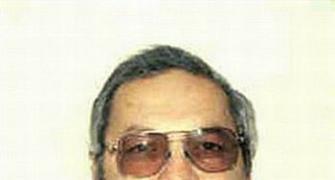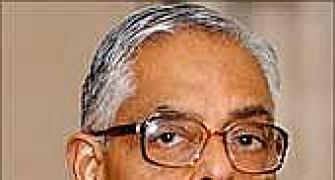The 'dean' of Indian-American legislators, Maryland House Majority Leader Kumar Barve, recalled that when he first decided to run, the community found his decision "dubious."
Headlining the kick-off discussion on 'Finding the Next Great Indian-American Candidate' at the Indian American Leadership Initiative national Convention, Barve said that when he launched his first campaign kick-off March 18, 1990 -- he was first elected to the state legislator that year -- "Indian Americans pretty uniformly assumed it was utterly impossible and idiotic for a person with a name like Kumar Prabhakar Barve to be running for any office, as opposed to my prospective constituents who were not Indian Americans and seemed to think that not only was this not an idiotic thing to do, but they were going to support me."
Barve asserted: "We need to understand than when a Muslim or a Hindu or a Jain or a Jew or Christian for that matter loses an election, chances are it's for reasons that had nothing to do with their religion. It's a mistake to draw too much of a conclusion from what's happening in South Carolina right now (with Nikki Haley, the Republican nominee for governor) or Louisiana (with respect to Governor Bobby Jindal), that these Indian Americans won because they changed their religion. We need to understand that America is much more complex."
Peter Brodnitz, principal at the Benenson Strategy Group, said, "Being able to identify with voters, being able to connect with voters, is one of the key criteria for any candidate and ethnicity doesn't determine whether or not people are able to make that connection."
He said that what Jindal and Haley did "that was really smart in both cases, was that they said they were running in a system that has serious flaws and we can get this benefit from a perception that we are an outsider because we are Indians. Especially in the case of Jindal, Louisiana was a broken system and Jindal thought if he could come in as an outsider, that was basically part of the brand President Obama is a perfect example of that as well."
Shekar Narasimhan, co-chair of the Democratic National Committee's Indo-American Council, who was another panelist, said that when he arrived in the US over 40 years ago, "I didn't know who Dalip Saund was. I don't know when it became obvious that we once had a Congressman of Indian-American descent When something happens once it's an aberration and when it never happens again for another 40 years, you have to ask yourself the question: Was that an accident? And, it probably was."
Narasimhan said, "People have accused people from my generation of writing checks, getting photo-ops, but not accomplishing much. But we wrote the checks because that's how we got access. The checks got photo-ops, but there was a problem. We didn't know what to ask for that's the truth. But then we moved very quickly, however, from a generation that understood that there was access to public policy to actually helping to create some of the organizations and foundations for what is IALI today."
He acknowledged: "I don't think we fully understood the importance of Kumar Barve. And, I want to give Kumar credit for also recognizing the mistake that we made. It's not that Kumar couldn't succeed with or without us. But the fact is we could have adopted five Kumar Barves and today they could have all been Senators of the United States. But we didn't."

The reason for the missed opportunity was simple: "It's human behavior and ego. We all wanted to be seen with the President of the United States. Being seen with the delegate from Maryland Assembly had no value. Yes, nice guy, funny name; but sorry, he was not considered somebody we needed a photo-op with. I am just telling you the truth."
Narasimhan told the audience: "You have all benefited enormously from the changing perception of India and don't forget that. Don't forget that Indian-American identity. You can't turn away from your heritage and then run towards its money."






